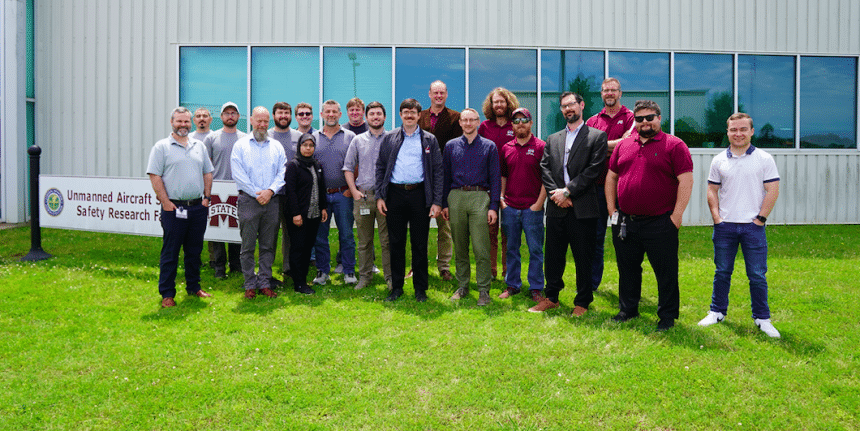Mississippi State University has been selected by the U.S. Department of Defense to help develop energy-efficient autonomous flight systems.
Specifically, the university’s Raspet Flight Research Laboratory has been tapped by the Defense Advanced Research Projects Agency to be a prime participant in its Albatross program. Per federal officials, the Albatross program serves to transform uncrewed aerial systems operations by demonstrating long-endurance, high-persistence, and operationally relevant flight capabilities using environmental energy sources, such as thermals and wind.
By extending the range and flight longevity of existing and future uncrewed aerial systems, the plan is for Albatross to play a key role in advancing airborne operations for national security, communications, and other essential missions.
“This is an area of flight research that has gone underdeveloped for too long. DARPA is targeting 75% reductions in energy usage for existing fixed-wing aircraft — almost unheard of in an industry where a 5% reduction is substantial,” Raspet’s Principal Investigator Matthew Berk said. “Vultures and albatrosses have been taking advantage of these natural sources of energy long before we dreamt of flight, and even glider pilots who preceded the Wright Brothers used soaring, yet we have not yet exploited such environmental energy sources for real-world commercial or strategic use cases.”
The Raspet research lab will lead a multi-university interdisciplinary collaboration. Mississippi State will collaborate with a University of Texas at El Paso team, led by autonomous soaring expert John Bird, and an Embry-Riddle Aeronautical University team, led by local weather modeling expert Michael Kinzel.
In partnership with Mississippi State’s Center for Advanced Vehicular Systems and its Department of Geosciences, Raspet will develop novel sensing algorithms, providing real-time information that enhances dynamic soaring in maritime conditions, and come up with techniques for sensing environmental soaring conditions.
Raspet’s operations team will integrate the full systems, using its technical prowess to test, evaluate, and certify Albatross prototypes. Crews at the Starkville lab will oversee flight safety assessments, airworthiness validations, and the design and execution of comprehensive flight test campaigns.
Mississippi State professor of meteorology and climatology Jamie Dyer will lead the development of global weather models to inform the algorithms developed for the Albatross program, while Mississippi State associate research professor Chris Goodin will spearhead sensing development efforts.
“While researchers have traditionally been limited by challenges associated with pilot training and weather predictions, our collaboration will leverage advances in weather prediction models and planning algorithms to encode soaring strategies for use by uncrewed aircraft,” Berk said.








